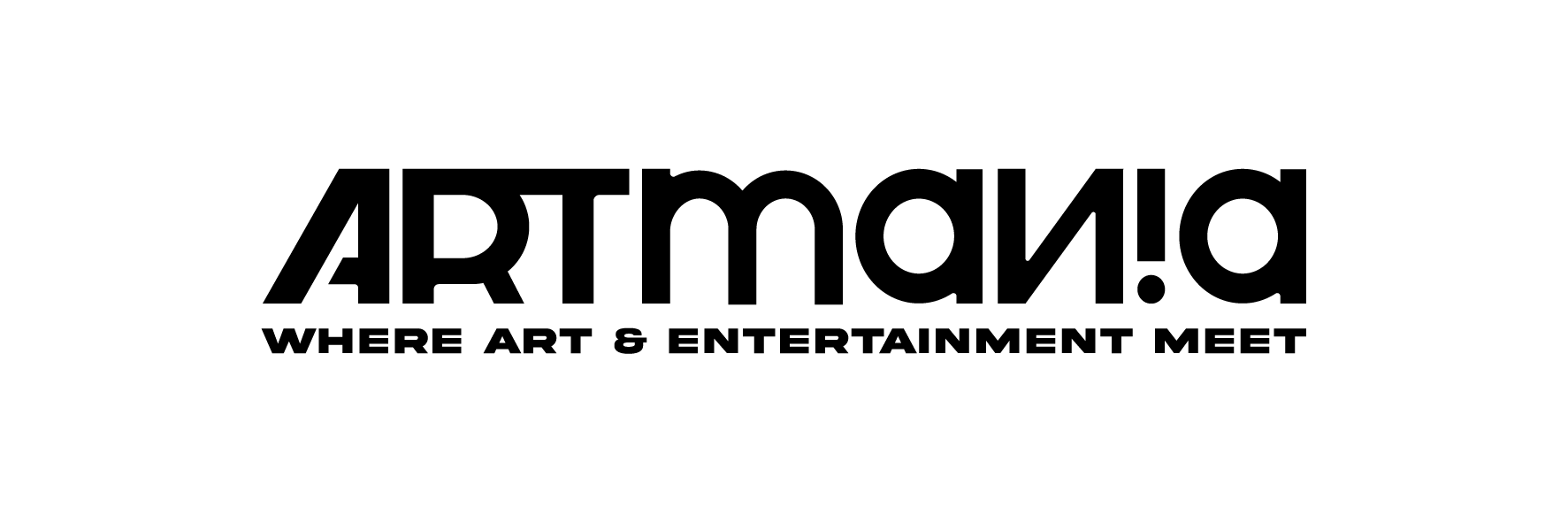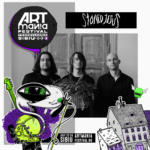Radio Lynx: Since it’s your first concert here and since and I have been looking forward to seeing you for a very long time I’m wondering have you got anything special for the concert at Sibiu?
Yes, we do,we’re gonna have the full band, the FCC playing along with eight extra classical players, we have four violins, two cellos and two French horns. We’re gonna be playing stuff from Elect the dDead, my first solo album as well as well as from the Elect the Dead Symphony and also some new songs from the Imperfect Harmonies. It will be the first tour when we are actually playing some of those songs and so and it’s gonna be a really beautiful, wonderful, you know, melting of three different musical colors.
Radio Lynx: Wow, you’ve got a pretty big crowd out there on stage.
Yeah, I hope the stage is big enough.
Radio Lynx: I’m sure it will be. You’ve played with many orchestras on this tour, has there ever been a moment when you were nervous about playing with these people even if you sent them the music sheets before?
I wasn’t really nervous, I think the more rehearsal we get with an orchestra, the less nervous there is a reason to be and because they understand the tempo, and it gets in their heads, as much as they can. But when you don’t get rehearsals, like it happens like some of these festivals it gets a little tricky. But we have a couple of systematic things to try and help out with that, but if the promoters gave us more time rehearsal there would be no reason to worry at all.
Radio Lynx: Since you mentioned Elect the Dead- your first album was a big success. Did you have any sleepless nights thinking that Imperfect Harmonies will not rise to the fans’ expectations?
To me greatness has nothing to do with the fans’ expectations, to be a great success means to be doing what you’re supposed to be doing musically. To be great success is not measured by album sales, because we know those are dwelling every day, no matter what type of music you play cause the industry is imploding on itself, to be great success is doing what you’re supposed to do in a quality and great way. And both Elect the Dead and Imperfect Harmonies are on the same level.
Radio Lynx: Since Elect the Dead was such a great album, did you think after doing this album that you should write all your material in an orchestral manner so that you don’t have to redo them again?
Well, because I did Elect the Dead with the Auckland Philharmonic Orchestra and released that as a separate DVD I didn’t want to make another orchestral record. I wanted to do something completely different. Imperfect Harmonies is not an orchestral record, is primarily a rock record with electronic, orchestral and jazz influences, kind of all melting in each of the songs. It’s a very unique sound that is very unique and modern at the same time.
Radio Lynx: In an interview this year you stated you were writing a full classical jazz album. How’s that going?
I’m not writing a classical jazz album, I’m writing a the first classical jazz symphony and it’s not going to be recorded it’s gonna have a live orchestral premiere, it’s an instrumental symphony, my first symphony and it’s going really well. I wish I had more time to finish it. And since I did a full tour of orchestras in New York I have more than one world classical orchestra in playing so this is good news. So I’m looking forward on working on that one as soon as I’m done with these records.
Radio Lynx: I’m really looking forward to listening to it. Since you are so great in music have you ever thought of making a film score?
Yes. I actually worked, I co-composed a musical score for this musical called Bug, and the director was the one who did the Exorcist, the original Exorcist. It was with Harry Connick Jr and Ashley Judd. It’s a really good film, kind of like a part horror, part comedy, on limes cape films. I’ve been looking for more opportunities to scoring films, I’m really into the idea of scoring.
Radio Lynx: Well, I hope you find them because you are not lacking imagination as I can see from your latest album.
Thank you.
Radio Lynx: Talking about your latest album, why did you release Borders Are and only after Left of Center, which is the official single?
Because to me a couple of reasons: number one, the message was very timely. I wanted to get the message more than anything else you know, stuff happening in Arizona, with the SB1070 having to do with the illegal aliens, stuff happening in Gaza and Palestine with the flotilla, the submarine sinking in North and South Korea, so many border disputes and things having to do with borders, it was necessary for me to put something out and that song was perfect for it Number one, number two, I think that musically it better represents me than Left to Center and so I didn’t want it to come out and be the first thing people hear, I wanted Borders are to be the first thing people get to hear.
Radio Lynx: Since you mentioned about borders are and these political issues that are going now, do you think that music has a much more higher impact to listeners when it comes with a background of politic, does the music get through and makes them aware of these issues?
I think music has a better chance of reaching people than political speeches, for example. I think just by listening to political speeches we tend to tune them out because we hear so much lies, we hear so much bullshit from the press, from the media, from the politicians, that when someone is talking we are used to tuning it out, we are not used to hearing truths anymore and I think music is a great intuitive medium to present those truths. And because it’s intuitive it doesn’t immediately apply to the logic side, it applies to the right side of the brain, and once you’ve processed the information, than you could really feel the double strength both from the logical and emotional part, both from the lyrical and the musical side.
Radio Lynx: We’re gonna go back a little to the past and I wanna ask you if it were more difficult to write music for your solo album than it was for System of a Down?
I write a lot of music, I have 500-600 pieces of unreleased music from classical to electronic, from jazz to rock, to all sorts of stuff. So I write music all the time, regardless of the project I am working on. I think when you have a clear vision of a song or of a piece of music or a record and you know how to accomplish it yourself, you know what to do. And I play a number of instruments and I’ve got my own studio, I produce, I engineer, so it’s not very difficult to do it myself. But it is fun to collaborate, you know, if you have a piece of music or a project that requires another character or another musician, or another producer, whatever, it’s cool to bring other energies in the project.
Radio Lynx: I was thinking about what you just told me about Borders Are and I was trying to compare the message and the political references you had with System of a Down and the ones you are sending now. Are they more powerful now or were they more powerful then?
It’s hard to make that kind of judgment, to be honest. I think things are just different, I don’t compete and I don’t compare my previous records and I don’t know how to answer that question.
Radio Lynx: I see. What is the difference between the American public and the European public, because you have been doing quite a lot of touring and I presume you have seen differences?
Absolutely. You know, I’ve actually noticed a lot of differences. If I were to compare Europe as a full body to North America, specifically the US as you said, the Europeans are more open to different genres of music than US fans. Again we are generalizing and each city and each situation is different but I think the US is generally homogenized and segregated market. All of our radio stations are very separate. One station will not play dance and rock. Everything separates and because of that I think it’s a very media driven market and brand driven market whereas in Europe people love an artist and if that artist comes and plays an acoustic they will go and see him. It doesn’t have to be a full rock set, or whatever the case, orchestra or whatever. I think there is more artist loyalty in Europe if I were to generalize and there is more brand loyalty in the US. It’s kind of weird.
Radio Lynx: Do you think an artist could be more successful in the US because it’s a larger market than Europe?
We’ve always had, both with System of Down, and my solo career, I always had a very equal footing both US market and with Continental Europe market. It’s kind of half, half for me, you know? It’s always been like that.
Radio Lynx: Tell me, what are you listening to these days, what’s in your playlist?
God, I’ve got 4000 records on my iPod and I don’t have time to listen to any of them. That is the honest truth. I work on so much music that I don’t have time to listen to it. The only time I have is during plane flights and stuff like that, when I don’t have the capacity to do other stuff, although I do interviews and stuff on plane, working on remixes, stuff on my inbox even on planes. So it’s quite hard to listen to music. In fact I have a stack of CDs I’ve just got from Europe and they are not even opened. So yeah, that’s my answer to that question. Be careful what you wish for, ‘cause if you get into the music industry you won’t have time to listen to music. It’s like a baker, if you become a baker, you will probably stop eating beaked gods.
Radio Lynx: I was wondering since you are very involved in politics, in sending a political message, has there ever been a moment when you though your voice wasn’t getting through, your message wasn’t quite understood?
That’s a good question. I think the appropriate activist action that we have to do, and whatever happens is a result of what happens. It’s hard to engage the results of activism on a collective world, especially with the way that it is right now. So, no matter what, you have to do what you have to do, what happens as far as a success of that particular cause or activism is secondary. If it finds success it’s through your efforts and the efforts of probably millions of others.
Radio Lynx: You mentioned those songs that haven’t been released yet, will we get to listen to them at any point?
Yes, some of the music that I haven’t released on my solo records I’m doing a musical based on the Prometheus Bound, the first Greek Play, we’re opening at the American Repertory Theatre in Boston in March 2011 I have about two hours in that, both scores will have songs of varying genres and different sounds, I’m working with Steven Sater, he’s the writer, so some of that music will come out there, the music will come out in video games, in films, in licensing opportunities, future records as well.
Radio Lynx: Have you started working on anything or are you just too tired after Imperfect Harmonies to do anything at the moment and you’re concentrating on the tour?
I’ve got a lot going on, I’ve got Imperfect that’s coming out with two major tours booked, that I’m starting in two days, I’ve just came from an European tour with the orchestras for five weeks, I’m putting out a second poetry book next year, I’m opening a musical next year, I’ve got my classical jazz symphony which I’m going to finish and premiere also next year, I’ve got a museum project in the theoretical phase also a nonfiction book concept that is in the skeleton phase and more music that I’m putting out there, and some m ore touring as well.
Radio Lynx: Wow, 2010 hasn’t even finished and you’ve got 2011 already booked.
Kinda, yeah.
Radio Lynx: Well, what can I say, thank you very much for this interview.
My pleasure, Alexandra.
Radio Lynx: And I’m looking forward to seeing you play in Sibiu.
Thank you , I can’t wait to come there.
Radio Lynx: I think you’re gonna like it, and the public also.
Me too, it’s eastern European blood.
Radio Lynx: Yeah, yeah it is, you’re coming close to home, more or less.
Exactly.
(C) Radio Lynx





